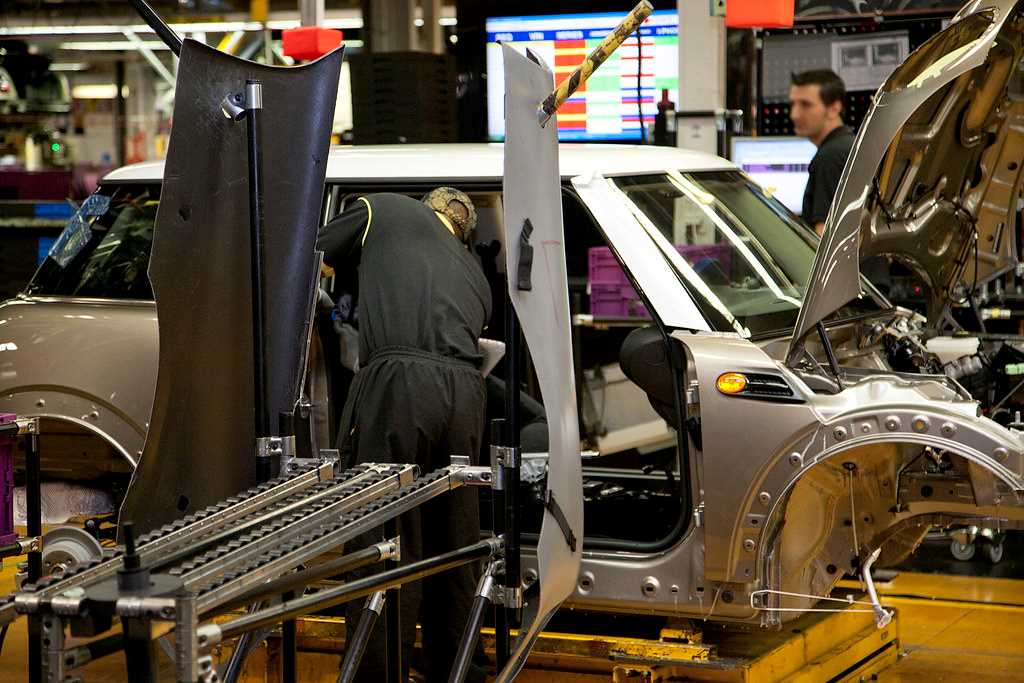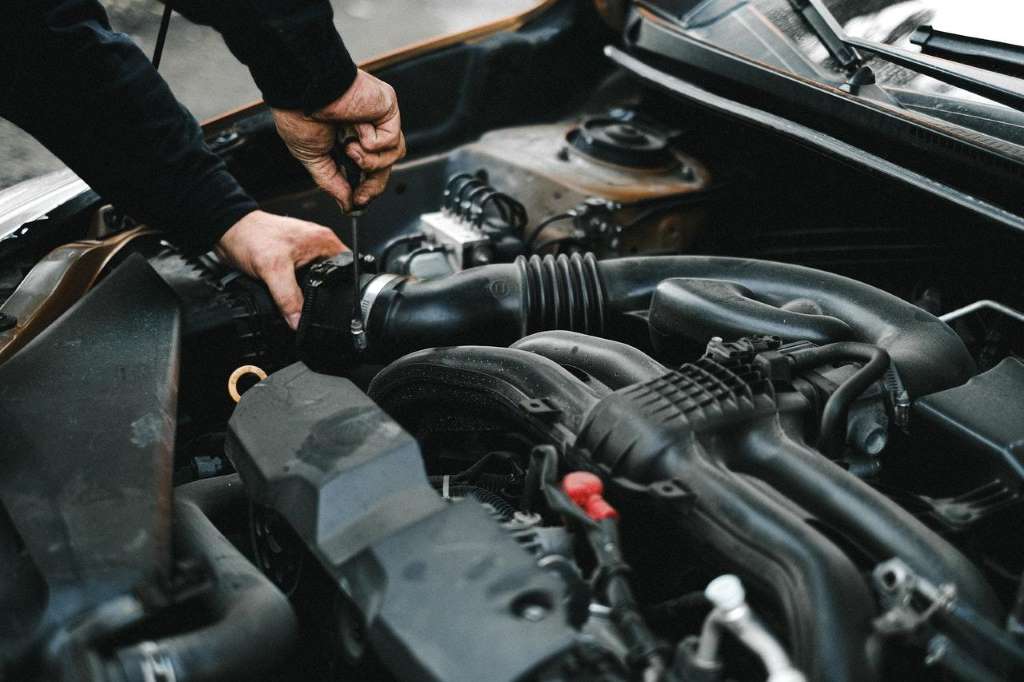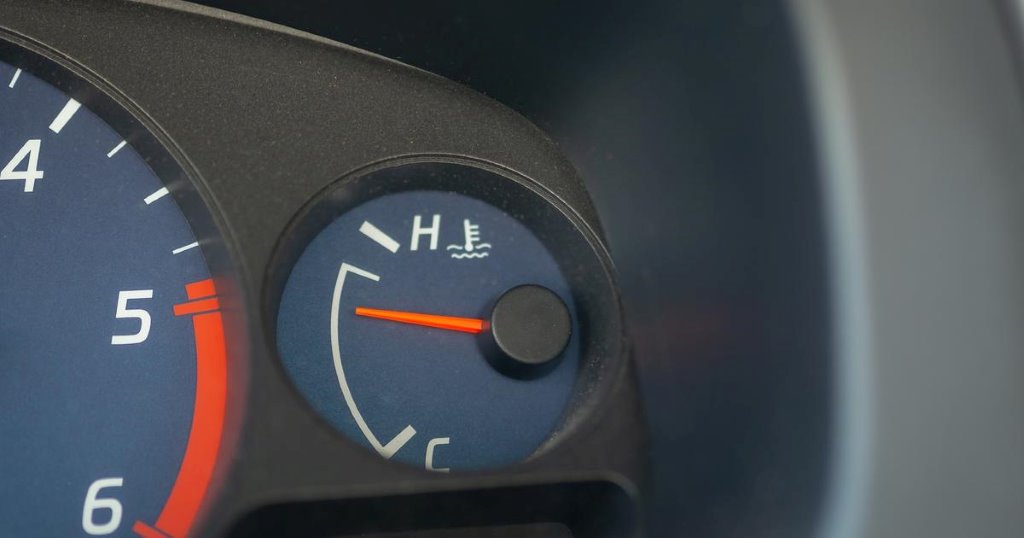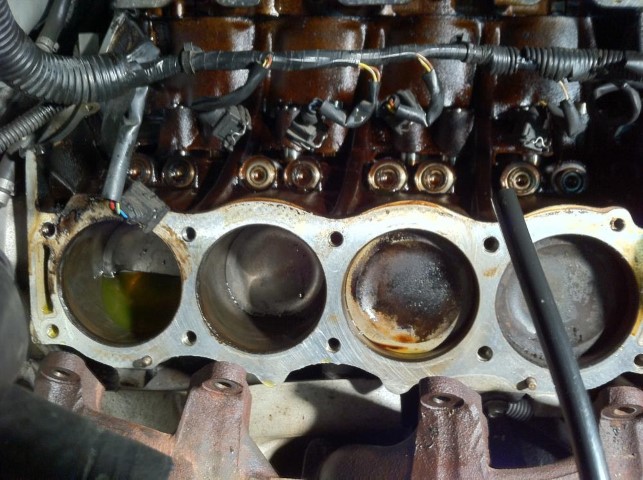A crack on engine block is a serious issue that can significantly impact the performance and lifespan of an engine.
Understanding how it happens, recognizing the signs, and knowing how to address it are essential for maintaining a vehicle’s health.
Here’s a detailed look into how cracks in engine blocks occur, along with answers to some frequently asked questions on the topic.
Contents
How Crack On Engine Block Occur
Cracks in engine blocks can occur due to a variety of reasons, each affecting the integrity and functionality of the engine in significant ways.
Thermal Stress
Engine blocks undergo extreme temperature fluctuations, particularly in the combustion chamber where temperatures can skyrocket during operation. This extreme heat, coupled with the cold temperature when a car is started, can cause the metal of the engine block to expand and contract rapidly.
Over time, these rapid thermal cycles put stress on the metal, leading to the development of stress fractures or cracks.
Materials like aluminum, which are used for their lightweight and efficient heat transfer, are particularly susceptible to thermal stress due to their high thermal expansion rates compared to other metals like cast iron.
Manufacturing Defects
The process of casting an engine block involves pouring molten metal into a mold to form the block’s shape. During this process, several issues can arise.
If air is trapped during the casting process, it can create bubbles or voids within the metal. These imperfections create weak points in the block where cracks can easily form under stress.
The presence of impurities in the metal, such as slag or other contaminants, can also weaken the structural integrity of the engine block. These impurities can act as initiation points for cracks under mechanical or thermal stress.

Corrosion
Corrosion is a chemical reaction between the metal of the engine block and its environment, often exacerbated by the engine coolant.
If the coolant is not mixed correctly with water, or if it is not suitable for the specific engine type, it can lead to increased corrosive activity.
Coolant that isn’t changed per the manufacturer’s recommendations can become acidic over time, leading to the corrosion of the metal.
Corrosion weakens the walls of the engine block, making them thinner and more prone to cracking under pressure or heat.
Physical Impact
Although less common, physical impacts from accidents or other external forces can cause crack on engine block. Severe impacts can lead to immediate cracks, while minor but frequent impacts may cause weakening over time, eventually leading to a crack.
Wear and Tear
Regular wear and tear is a natural part of an engine’s life cycle. As an engine ages, its components gradually wear down. This wear can lead to.
- Reduced material strength: Continuous operation can fatigue the metal, reducing its strength and resilience.
- Structural weakening: As the components wear, they may not fit as tightly together, causing unusual vibrations or stress concentrations, which can initiate cracks.
- Increased susceptibility to other forms of damage: A worn engine is more susceptible to damage from overheating, corrosion, and physical impacts.

Coolant Leaks
One of the most overt signs of a cracked engine block is coolant leaking directly from the block. This happens when a crack forms in the engine block’s walls, allowing the coolant that circulates to cool the engine to escape.
These leaks can sometimes be visible on the outside of the block or may be evident in the area underneath the vehicle when parked.
Ignoring these leaks can lead to low coolant levels, which compromise the engine’s ability to maintain optimal temperatures, leading to overheating and further engine damage.
Poor Engine Performance
A crack on engine block can manifest in various ways that affect overall engine performance:
- Misfires: Cracks can disrupt the engine’s internal pressures or lead to coolant mixing with the fuel, causing misfires during combustion.
- Decreased power: Structural integrity loss in the engine block can reduce its ability to efficiently convert fuel into power, resulting in a noticeable decrease in engine performance.
- Inefficient fuel consumption: When the engine block is compromised, the engine may require more fuel to perform standard tasks if the combustion process is not as effective, leading to poor fuel economy.
Smoke
White smoke from the exhaust is a particularly telling sign of a cracked engine block. This occurs when coolant leaks into the combustion chamber, where it is burned along with the fuel.
The presence of coolant in the combustion process produces a white steamy smoke, which is distinct from the black or blue smoke associated with burning oil or fuel respectively.
This symptom should be addressed immediately as it indicates that the integrity of the combustion chamber has been compromised.
Overheating
Overheating is a critical symptom of a cracked engine block. The engine block plays a crucial role in the vehicle’s cooling system, containing the coolant and allowing it to circulate.
A crack can cause a reduction in coolant levels or impair the coolant’s circulation, leading to an inability to effectively remove heat from the engine. Car overheating can further exacerbate the crack or cause additional damage to other engine components.

What Is The Cracked Engine Block Repair Cost
For small cracks that can be fixed with sealants or minor welding, costs can range from $150 to $500. These are often short-term fixes.
Costs can range from $1,000 to $3,000 if advanced welding or extensive machining is required. This depends heavily on the labor costs and the complexity of the work.
Furthermore, replacing the engine block, or the entire engine, is often the most recommended solution for severe cases.
This can cost anywhere from $3,000 to over $10,000, depending on the vehicle and the type of engine. Remanufactured engines might be a cost-effective alternative to brand new ones.
FAQs on Crack On Engine Block
-
Can weather conditions cause engine block cracks?
Extreme weather conditions can contribute to engine block cracks. Rapid temperature changes, especially in regions with severe cold or hot climates, can cause the metal of the engine block to expand and contract dramatically.
This thermal stress can eventually lead to cracks if the engine block material undergoes repeated thermal cycling without proper warm-up and cool-down periods.
-
How does engine age affect the likelihood of cracking?
As engines age, the metal can fatigue from years of heating and cooling cycles, as well as from the stress of operation.
Older engines, particularly those that haven’t been regularly maintained, are more susceptible to developing cracks due to this cumulative wear and tear. Regular inspections and maintenance are crucial to detect early signs of wear before they develop into cracks.
-
Can incorrect installation of engine components lead to cracks?
Improper installation of engine components can indeed lead to cracks in the engine block. Over-torquing bolts, incorrect placement of parts, or using incompatible components can create undue stress on the engine block.
Such stresses, especially if they are near critical load-bearing areas, can lead to fractures and cracks over time.
Check out this video from FindTheBestCarPrice to learn how to identify a cracked engine block!
-
Are some engine block materials more susceptible to cracking?
The type of material used in the engine block affects its susceptibility to cracking.
For example, aluminum blocks are lighter and have better heat conductivity than iron blocks but are generally more prone to cracking under stress because aluminum is less durable under high temperatures and pressures compared to cast iron.
-
How does engine tuning or modifications affect the risk of engine block cracks?
High-performance modifications, such as increasing turbo pressure, installing larger pistons, or using aggressive engine tuning, can significantly raise the pressure within the combustion chamber.
These modifications, while boosting performance, can also stress the engine block beyond its design specifications, increasing the risk of cracking.
-
What role does coolant play in preventing engine block cracks?
Coolant plays a critical role in maintaining the engine’s temperature within safe limits. A lack of coolant due to leaks or poor maintenance can lead to overheating, which is one of the primary causes of crack on engine block.
Ensuring that your cooling system is functioning correctly and that the coolant is at the proper level and condition is essential for preventing temperature-related engine damage.



